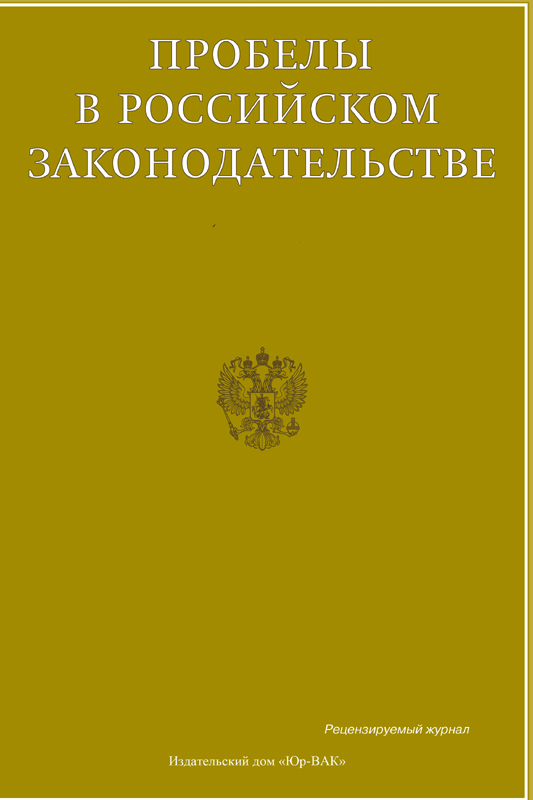Theoretical and Practical Aspects of the Application of the Machine-Centric Concept in Order to Determine the Authorship of the Result Created with Artificial Intelligence Technologies
- 作者: Kubrak V.S.1
-
隶属关系:
- Financial University under the Government of the Russian Federation
- 期: 卷 16, 编号 2 (2023)
- 页面: 89-94
- 栏目: Private Law (Civil) Sciences
- URL: https://journals.eco-vector.com/2072-3164/article/view/568693
- ID: 568693
如何引用文章
详细
Recently, the problem of applying a machine-centric concept in order to determine authorship for a result created with the help of artificial intelligence technologies has been actualized. Based on the analysis of the legal doctrine, the author comes to the conclusion that the machine–centric concept does not correlate with the theoretical justifications of copyright, since all the theoretical justifications of copyright relate to a specific subject - the author-a person. The author also analyzes the latest judicial practice in this area. In conclusion, the author of the work comes to the conclusion that the analyzed theoretical and practical aspects make it possible to identify a more negative approach to solving the question of whether an artificial intelligence system can be named as the author of the invention. The author sees the possibility of securing the rights to the results created with the help of technologies, subject to the formation of new theoretical justifications. In particular, the answer to this request may be an anthropocentric concept, suggesting the possibility of using technology as a human tool.
全文:
作者简介
Veronika Kubrak
Financial University under the Government of the Russian Federation
编辑信件的主要联系方式.
Email: penskaya2015@mail.ru
postgraduate student of the Department of Legal Regulation of Economic Activity
俄罗斯联邦, Moscow参考
- Morkhat P. M. The legal personality of artificial intelligence in the field of intellectual property law: civil law problems //Dis.... Dr. yurid. M. – 2018. 420 p.
- Ivliev G. P., Egorova M. A. Legal problems of the legal status of artificial intelligence and products created by artificial intelligence systems //Journal of Russian Law. – 2022. – No. 6. – P. 32-46.
- Abbott R. I think, therefore I invent: creative computers and the future of patent law // BCLC Rev. – 2016. – Vol. 57. – p. 1079.
- Vitko V. Analysis of scientific ideas about the author and the rights to the results of artificial intelligence // Intellectual property. Copyright and related rights. 2019. № 3. P. 5-22.
- Locke J. Two Treatises on government // Locke J. Essays: In 3 vols. 3. M., 1988.
- Bentham I. Introduction to the foundations of morality and legislation. – DirectMEDIA, 1998.
补充文件








